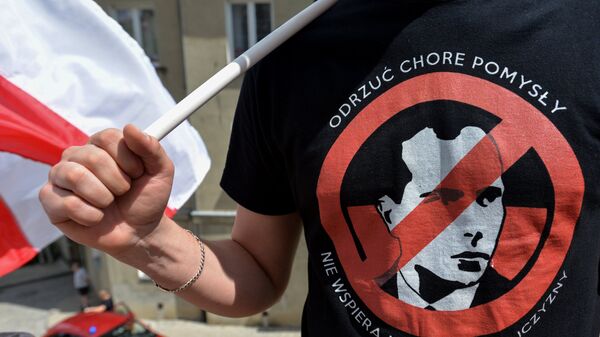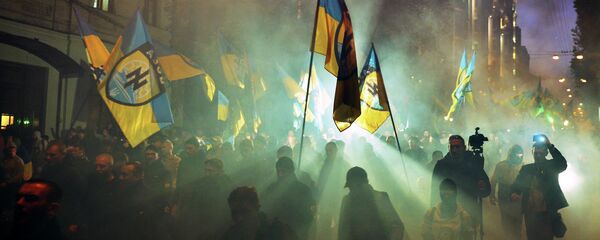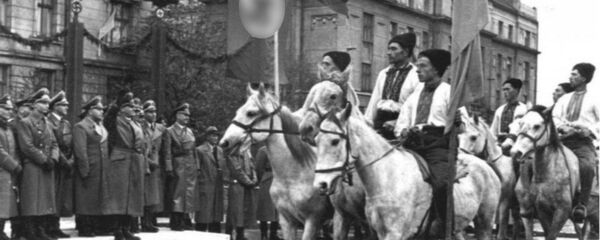In an interview for the news weekly magazine Do Rzeczy, excerpts from which were published by other Polish outlets on Monday, Kaczynski indicated that he had warned Ukrainian President Petro Poroshenko that Kiev would have no place in Europe if it continued to indulge in the glorification of war criminals like Stepan Bandera, the leader of the WWII-era Ukrainian nationalist organization that collaborated with the Nazis.
Kaczynski said "for years now, we have disagreed with the construction in Ukraine of a cult to people who engaged in genocide against the Poles. They even surpassed the cruelty of the Germans, which was not easy to do."
"In short, this is a matter of choice for Ukraine," the politician emphasized. "I told President Poroshenko clearly that Ukraine wouldn't be entering Europe with Bandera. For me this is an issue that is absolutely clear," he added, "because we have demonstrated great patience. But this patience has its limits."
Ukraine's war-time nationalist fighters, led by ideologues including Bandera and Roman Shukhevych, were well-known for their war crimes against anti-fascist Ukrainians, Russians, and Jews, but committed particularly horrific war crimes against Polish civilians in territories that are now part of western Ukraine.
Between 1943 and 1944, the Shukhevych-led Ukrainian Insurgent Army (UPA) conducted a massive campaign of ethnic cleansing in western Ukrainian regions of Volyn and eastern Galicia. Historians have estimated that between 80,000 and 120,000 Polish civilians, mostly women and children, were killed in the campaign, which was also known for its shocking brutality. Militia members were known to have burned down entire villages, and used knives and axes on their victims to save bullets.
After the collapse of the Soviet Union, efforts began in Ukraine to rehabilitate Bandera, Shukhevych, UPA and other collaborationist groups as 'fighters for independence'. Foreign grants and textbooks sympathetic to these groups and figures flooded into the country, many of them written and published by Ukrainian communities in the United States and Canada.
Polish leaders aren't the only ones that have criticized Kiev's glorification of these figures. Moscow has repeatedly condemned Kiev for doing so, emphasizing that far more Ukrainians served in the ranks of the Red Army during the war. Last year, Israeli President Reuven Rivlin paid an official visit to Kiev, where he told President Poroshenko and lawmakers that the nationalists' crimes must never be forgotten. That visit resulted in a mild scandal, with Ukrainian MPs demanding that the Israeli President 'apologize' to Ukrainians for his comments.




